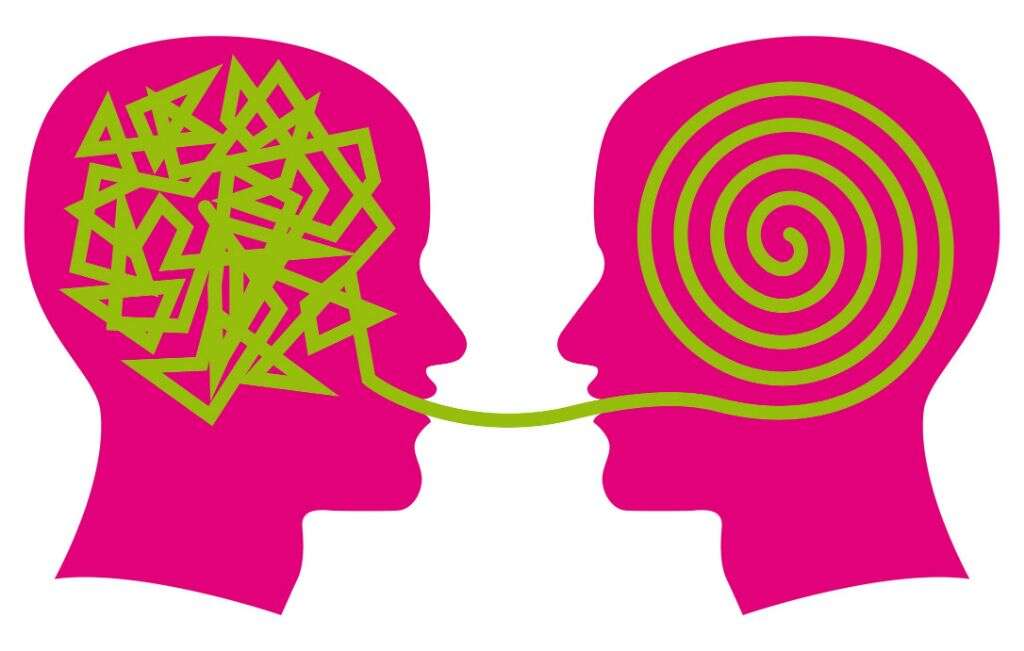What is Hypochondriasis?
Hypochondriasis is known by a few different names. You may hear “hypochondria” whispered about an aunt who goes to the doctor too frequently. Other family members may downplay the condition, dismissing it as just one of those eccentricities you all put up with. However, hypochondriasis, or illness anxiety disorder, can be a serious problem.
Contrary to popular belief, hypochondriasis is not simply an odd personality quirk. There are many reasons why a person may develop this disorder, and there are several treatment options available. The first step, however, is understanding illness anxiety disorder as a real issue and knowing when to address it.

1. What Is Hypochondriasis?
Hypochondriasis is a mental state in which sufferers believe they have a serious, life-threatening medical problem. Of course, when people show physical symptoms of something being terribly wrong, they are right to seek medical help. Hypochondriasis is differentiated by scenarios where symptoms are mild or nonexistent, indicating that the real problem is an unfounded anxiety.
Those who suffer from illness anxiety disorder seek medical advice but they do not necessarily believe it, especially when doctors tell them there’s nothing wrong. They may seek the opinions of several doctors, hoping to find someone to give them some relief for their fears by diagnosing them with a physical ailment that matches the symptoms they believe they’re having.

2. What Are the Symptoms of Hypochondriasis?
Illness anxiety disorder is on the obsessive-compulsive spectrum. People with hypochondriasis obsess about their health. They scour the internet for the worst possible scenario for any mild or perceived symptom. They make numerous doctor’s appointments, trying to find a medical professional to verify what they’ve found online. It is common for them to remain on the lookout for new potential illnesses.
Another symptom that marks hypochondriasis is intense fear or worry. People who suffer from this disorder become alarmed easily when any small physical symptom appears. This anxiety, in turn, fuels their obsessive behaviors.

3. What Are the Possible Complications of Hypochondriasis?
On its own, hypochondriasis is not life-threatening. If it goes unchecked, however, it can lead to depression and even thoughts of suicide, particularly if the person feels abandoned by family members who are tired of dealing with the compulsive behavior. Those with the condition may become withdrawn, hiding their thoughts from everyone until it’s too late.
Increased frequency of medical tests to find an illness that doesn’t exist can have physical ramifications. If, for example, people have blood drawn on a regular basis, the lightheaded feeling they experience afterwards can compound their fears that something is wrong with them. Excessive tests take a real toll on the body, and this effect feeds their faulty perceptions.

4. What Are the Social Outcomes of Hypochondriasis?
The anxiety caused by hypochondriasis can make it difficult to function socially. This difficulty can lead to relational problems as others become frustrated with the sufferer’s lack of a grasp on reality. People with illness anxiety disorder may also isolate themselves to avoid catching something, making it difficult to socialize or hold down jobs.
Financial problems are also common with this disorder. Medical testing and the subsequent bills that pile up can be stressful even when a person has a legitimate medical diagnosis. When the rest of the family recognizes that the medical problem is not real, however, the financial burden can put further strain on their relationships.

5. What Causes Hypochondriasis?
The appearance of a single serious symptom can spark ongoing anxiety. For example, panic attacks often mirror the symptoms of heart attacks. Most people, after their first rush to the emergency room to confirm that they are not dying, accept the test results that there is nothing wrong with their hearts. A small percentage, however, hold onto the belief that there is something physically wrong with them.
Medical history can also be a factor. The trauma from a serious childhood illness can result in hypervigilance about health later in life. A family history of a certain disease can inspire an obsessive search for it.

6. Who Tends to Become Hypochondriacal?
Illness anxiety disorder affects 2-5% of the population. It affects men and women equally, although it may manifest in different ways in those socialized with rigid gender roles. Men may come across as more aggressive or angry, while women may seem more worried and fearful.
People with a history of trauma or abuse are more likely to develop hypochondriasis as they get older. They seek to take control of their health because they were not able to control what happened to them in the past. Frequent visits to the doctor are their way of reclaiming that control.

7. How Is Hypochondriasis Diagnosed?
A diagnosis for illness anxiety disorder typically starts with a medical doctor. The physician conducts a series of medical tests to rule out physical illnesses. If those come up blank, he or she is likely to refer the patient to a mental health professional.
Psychological evaluation usually involves not only an interview with the person suffering from anxiety but also with family members and close friends who observe their behavior. After talking through the patient’s unique experience and running psychological tests, the doctor is better equipped to give a proper diagnosis.

8. What Are the Treatment Options?
While the ultimate goal of treatment is to get people with hypochondriasis to stop obsessively seeking medical advice, it doesn’t do any good to ignore their fears. Therefore, treatment often involves setting up regular appointments with their general practitioner. These appointments allow their doctor to consistently offer proof that nothing is wrong.
Other common treatments involve some type of therapy. Cognitive behavioral therapy is often effective, teaching patients to recognize disordered thinking and address it with action. Depending on the individual case, medications used to treat anxiety or depression may also help.

9. How Do You Prevent Hypochondriasis?
There is no foolproof method of preventing hypochondriasis. No one can predict how different people are going to internalize and react to the effects of trauma. The symptoms of illness anxiety disorder usually emerge before friends and family realize it could be an issue.
It may be possible to keep the problem from getting out of control, though. Early detection and intervention is key. Doctors and people close to the patient should be careful to neither ignore nor enable irrational perceptions. The sooner people can learn to recognize their condition for what it is, the better off they’ll be.

10. What Is the Prognosis for Hypochondriasis?
The good news is that those with hypochondriasis are already seeking medical help. Therefore, diagnosis is likely. Whether treatment will be effective, however, depends on the patient’s willingness to accept the diagnosis.
It is important for everyone involved to understand that, even with treatment, a person may never be fully cured of this disorder. Those with hypochondriasis can, however, learn to deal with the problem well enough to function sufficiently in life.











